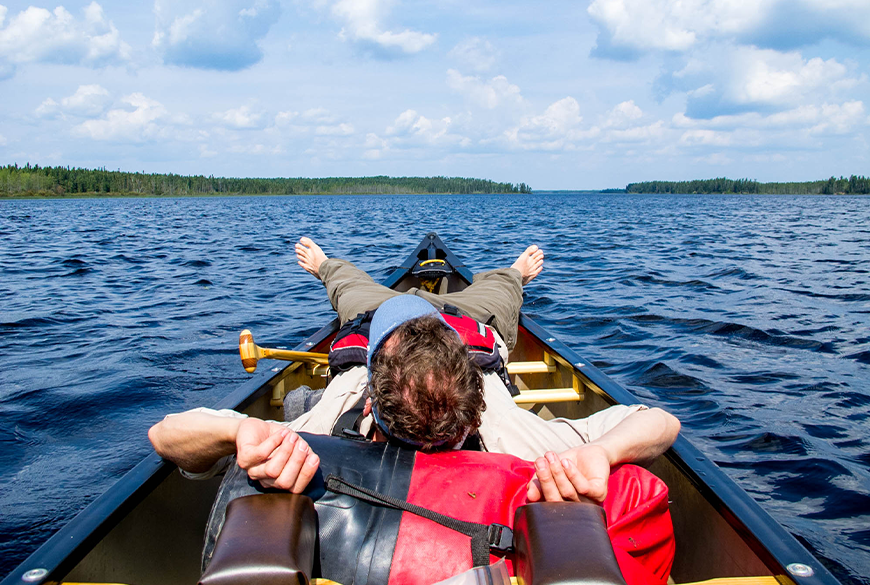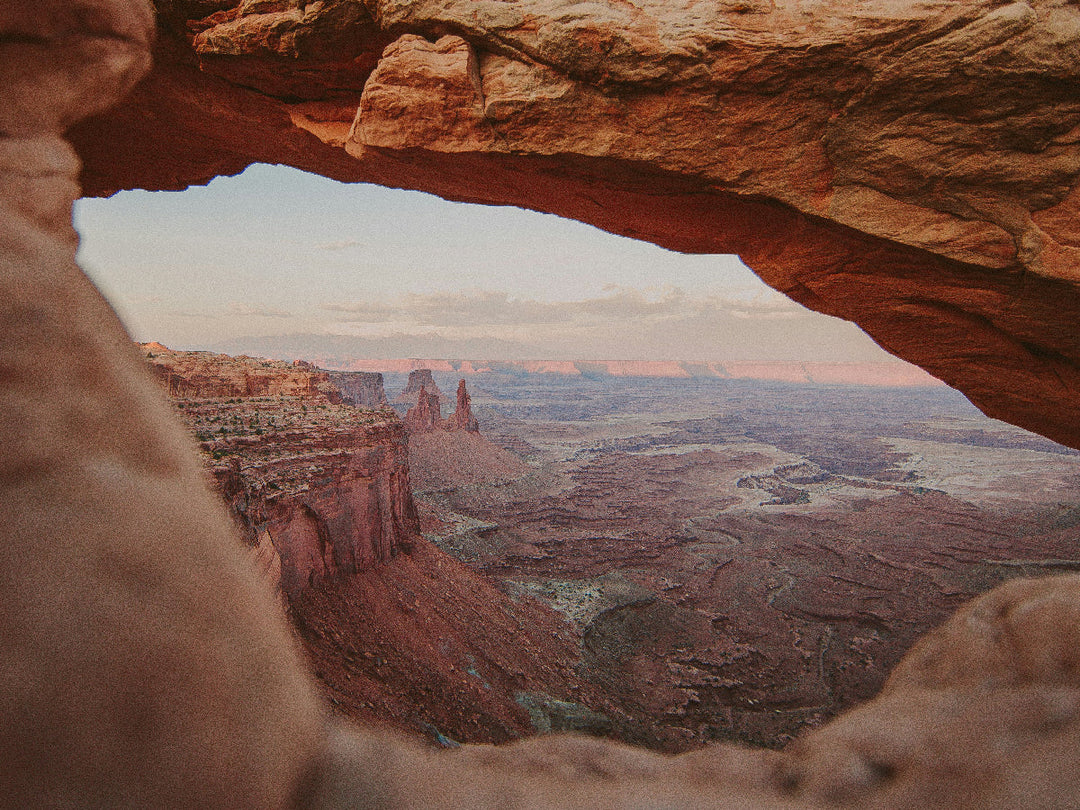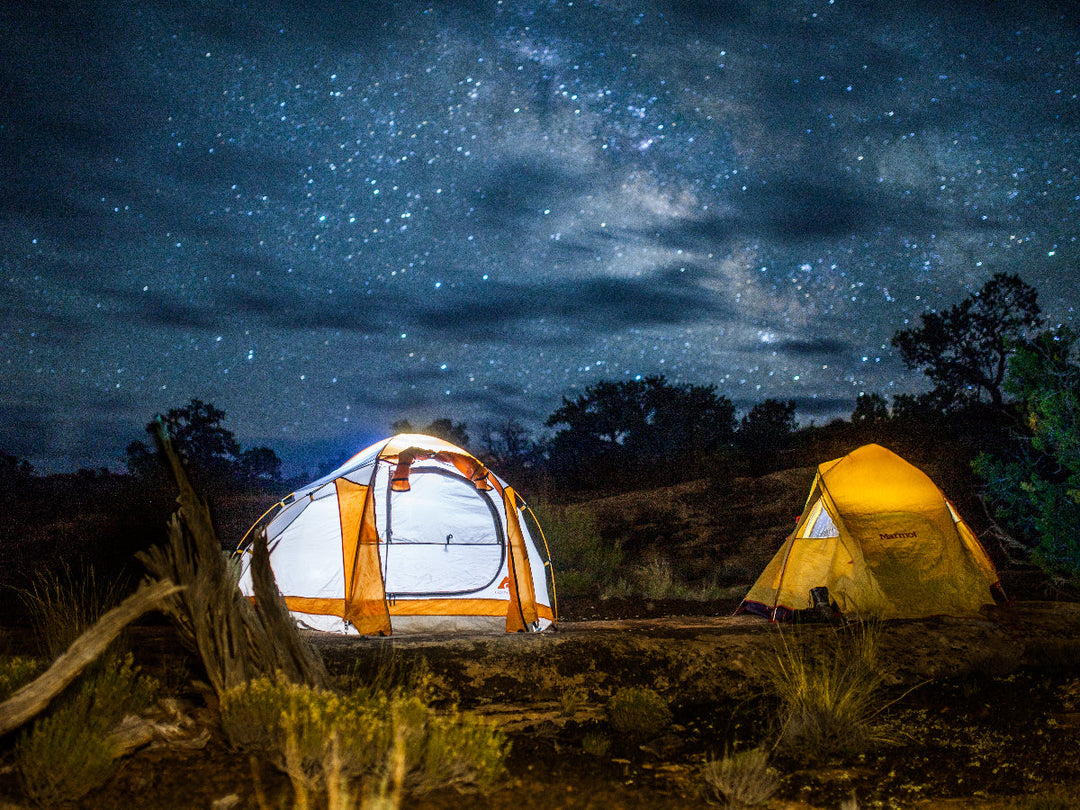Unplug This Summer and Beyond

Canoe kickback. Wabakami Provincial Park, Ontario, Canada. © John Huston
Expeditionary Perspectives on Taking Your Brain Off the Grid
by John Huston
People often ask me, “What is your favorite part of doing expeditions?”. The expedition life checks a lot of boxes: challenge, camaraderie, creativity, connection with nature, remoteness, working with sled dogs... it’s a long list. Typically I’ll answer something to the effect that skiing all day, everyday in the changing light of the high latitudes are my most cherished moments. But if I unpack that a bit and apply it beyond polar expeditions, I think it boils down to my love for the hard working unplugged simple life of traveling under my own power in the wild. In other words I get to live like a human animal, at the natural rhythmic pace of self propulsion, free from the inputs of modern society.
This concept of detaching into a simpler life has been on my mind lately. Perhaps it’s my brain telling me to take a break from checking the White Sox scores on my phone... or the other constant and addictive inputs of our hyperconnected society … or my busy household abuzz with young children. Or maybe it’s because we just bought an off the grid cabin on the edge of the Boundary Waters in northern Minnesota. Whatever it is, I’ve found myself craving the quiet mental flow I find on expeditions.
Due to the nature of polar expeditions, I’ve worked to train my brain to be comfortable with what some people would call a boring existence of skiing slowly with a load in tow for 8-12 hours a day for 2 months straight. When training I often choose to do it sans any form of audio input. The aim being to let my thoughts be what they are and to be ok with whatever I end up thinking about. I find this letting go of mental expectations to be freeing. Often my perception of time is altered, the hours can fall away quickly as the pace of my thoughts slow down.
Constant or on-demand input is a new development in human history. For the thousands of years leading up to the last 80 years or so, humans existed in silence or with whatever audio input they could generate themselves in the form of songs, stories, etc. … Travel on foot or horseback was a silent endeavor compared to a road trip with a stereo soundtrack. I see that historic mode as our natural animal ability and one that we all have the capacity to not only tap into but to benefit from.
On expedition I’ve gone stints of 65 days and 72 days on foot with nothing in my ears. During expeditions where I have used an iPod I enjoy the music or podcasts for a time, but always eagerly return to the silence where I find my brain connecting with the environment and processing time flow the best.
Five years ago I met the author Florence Williams who has written extensively on the positive psychological and physiological impacts of unplugging during immersion in nature. Her fascinating book, The Nature Fix (Why Nature Makes Us Happier, Healthier, and More Creative), is full of countless stories and studies documenting the power of nature. Basically time in nature has so many positive effects on us – like lowering the heart rate and quieting down brain activity – that if it were a pill people would shell out big money for it. This well written book is an easy read and really hits home for me. It adds compelling science to so many feelings in my life that are the result of living in today’s crowded, plugged-in world..
With the calendar turning to summer, here are few ideas that might help a person unplug over the next few months and beyond.
8 Ways to Take Your Brain Off the Grid

Dune sunset. Western Michigan. © John Huston
- Commit to adding some unplugged time in nature to your life. Start small and build. Florence Williams says that the positive affects can start happening after just five minutes outside in nature. Accept that it might be uncomfortable or seem boring at first. Stick with the commitment.
- Find an easy place to access some form of nature...a local park, hiking trail, waterfront etc… Find a few nature spots that might require more time to visit, but also more reward perhaps.
- Embrace letting the mind flow without added input. Let whatever feelings and thoughts happen happen. Try release expectations of where your brain will go.
- Be active outside – walk, do yard work, workout etc… – without headphones or a stereo, and even better with your phone turned off.
- Make some drives without audio input.
- Watch sunsets and sunrises.
- Get together with friends and family around a fire pit.
- Turn your phone off for the weekend.
The mental challenge of these sort of activities can illuminate how addicted we are our devices and their constant seemingly essential droplets of information. Unplugged time in nature has an immense capacity to refresh and clear the head. We just have to reconnect to our forgotten ability to do it.





